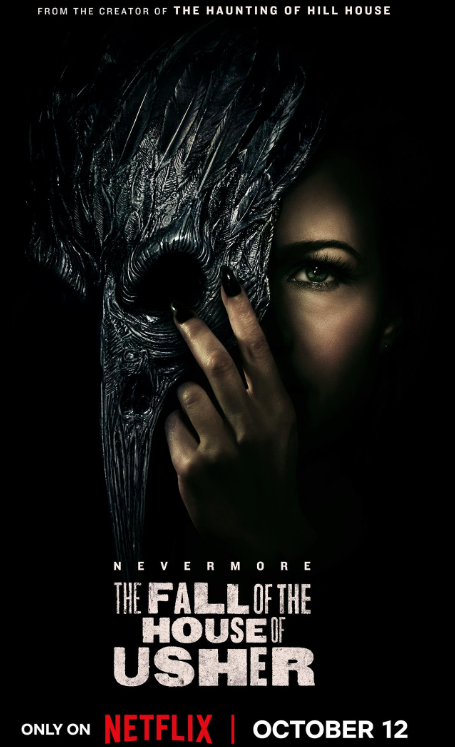Mike Flanagan just dropped his goriest, most terrifying television show to date, and it’s the perfect show to binge in the spirit of all things spooky.
Flanagan’s “The Fall of the House of Usher” is a satisfyingly uncomfortable and entertaining look at the cost of power, and the fitting natural conclusion to the showrunner’s lucrative and iconic partnership with Netflix.
The show, based on multiple Edgar Allen Poe stories, follows the powerful Usher family as they die off, one by one, in a two-week span — but don’t worry, this isn’t a spoiler. The opening scene is a collage of newspaper clippings that document each Usher child’s death, setting the audience up for the truth of the story — it’s not about whether they died, but why they died.
From the first minute, “Usher” never slows down. The audience witnesses the deaths of six adult Usher children, and the middle six out of eight episodes look at each child under a microscope. Without fail, every episode culminates with a brutal, increasingly gruesome demise.
Flanagan balances three separate timelines in “Usher” with deft skill, which is no surprise given the similar setup of his two best Netflix series “The Haunting of Hill House” and “The Haunting of Bly Manor.” Each of the three shows has a distant-past storyline, a near-past storyline and a present timeline. It’s a testament to Flanagan’s talent that I didn’t favor a single timeline over another while watching “Usher,” because each one had me entirely captivated.
What begins as a seemingly run-of-the-mill eerie story turns into an in-depth look at greed and family expectations. If “The Haunting of Hill House” is a show about a family that the audience roots for despite their flaws, “Usher” is the opposite.
The Usher family exists on a spectrum that ranges from “I just wouldn’t want to be friends with them” to “they are going straight to the fiery pits of Hell.” Only one character, patriarch Rodrick’s granddaughter Lenore, is undeniably good. It makes for a delicious slice of television that had me cheering at some moments as I watched the Ushers meet their fate.
The ensemble Flanagan gathered to play the various Usher family members anchors the story throughout the different episodes and plotlines. In particular, Willa Fitzgerald is entrancing as young Madeline Usher, the cold-blooded and cunning matriarch of the family, in the distant-past timeline.
Carla Gugino, one of the few non-Ushers to star in the show, is spectacular (as always) as the mysterious Verna — but I’ll leave it at that, because the series is best when watching it with absolutely no knowledge of what’s to come.
Every actor chosen to portray one of the six siblings feels perfectly and uncannily suited to the role, from Samantha Sloyan as the neurotic oldest sister Tamerlane to T’Nia Miller as the ambitious Victorine. The best episode of the show is undoubtedly episode eight, “The Raven,” but out of the sibling-centric episodes, “The Tell-Tale Heart” is the stunner.
“The Tell-Tale Heart” follows Victorine, a heart surgeon whose descent into madness culminates with the most terrifying two minutes of media I’ve ever consumed. Every second is filled with dread and unadulterated fear, and I won’t be getting the final reveal out of my head any time soon.
Though it’s in the show’s nature to portray the faux-perfect, glossy lives of some of the richest people in the world, sometimes the cinematography feels a bit too fake — just too impersonal to fully immerse the audience. As much as we’re supposed to loathe this family, we’re also supposed to fully buy into the idea that they could walk off the screen and be real people in the real world.
For the majority of the story, there isn’t one obvious emotional core that the audience can root for. The heart of the show comes too late — in the sense that, as it becomes clear who the viewers should root for, their tragic fate begins to unwind. It’s a devastating and unexpectedly genuine blow for a show that emphasizes the moral deprivation of its main characters.
Though it’s neither his best nor saddest work — both of those titles go firmly to “Hill House” — “The Fall of the House of Usher” is another notch in Mike Flanagan’s belt of wonderfully entertaining and distressing shows that feels specifically made to be watched and rewatched every Halloween season.



